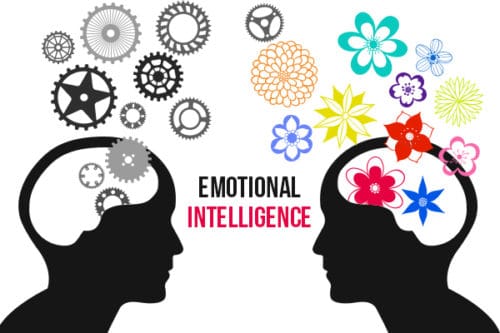8 Signs You Lack Emotional Intelligence

Intelligence isn’t just about being book smart. In recent decades, psychological research has revealed that emotional intelligence can also have important effects on our lives. Emotional Intelligence generally refers to the ability to work effectively with emotions; people who are high in emotional intelligence tend to have more satisfying personal and professional relationships, as well as greater levels of psychological well-being.
So how do you know if you struggle with emotional intelligence? Look for the following eight clues, focusing on the overall pattern you see in yourself rather than isolated incidents.
1. You have a hard time reading people.
Emotional intelligence allows you to recognize emotions in other people. You know when your partner is upset at you, for example, or when the checkout person at the grocery store is feeling stressed. Misreading others’ emotions can lead to problems, whether you’re seeing emotions that aren’t there—like mistakenly thinking your partner is upset with you—or missing ones that are present. Correctly reading others’ emotions makes it easier to respond effectively, like making amends with your partner who’s upset at you or saying a kind word to someone who’s feeling overwhelmed.
2. You’re often not sure what you feel.
Emotional intelligence also involves being able to recognize your own emotions, which may be even more important than recognizing them in others. When you don’t know what you feel, your emotions can drive your actions in unproductive ways. For example, unacknowledged anger toward a co-worker might seep out in passive-aggressive behavior. On the other hand, if you know you’re feeling stressed and anxious, you can take care not to take out your emotions on the people you care about.
3. It’s hard for you to make sense of emotions.
When you lack emotional intelligence, you’ll wonder why you or someone else feels the way they do. You might be unable to pinpoint the source of your irritation at a friend, for example, or be perplexed by why a character in a film is sad. Perhaps you find your partner’s emotions confusing, or you think they shouldn’t feel the way they do. This lack of understanding can lead to conflict, like when you tell your partner they “shouldn’t be upset” or have “no reason to be sad.”
4. You struggle to control your emotions.
Emotional intelligence is about more than recognizing and understanding what you feel—it also involves being able to manage your emotional state. You might realize you need to go for a walk when you’re feeling overwhelmed by anxiety, or decide to postpone a difficult conversation with your child until you’re feeling calmer. If emotional intelligence isn’t your strength, you may be prone to losing your temper or not being able to recover when you get upset. Perhaps you get mad at your partner and can’t seem to get over it even after you’ve worked through the issue with them. Emotions that aren’t managed effectively will likely lead to problems in your relationships.
5. Emotions stop you from working productively through problems.
If you’re low on emotional intelligence, you’re likely to be easily overwhelmed by emotion, which interferes with problem solving. You might struggle to work through issues with your partner when emotions are high, or find that your emotions often get in the way of your work. One way or another, emotions tend to make you less effective at dealing with difficult situations.
6. People tell you that you lack empathy.
Empathy, being able to relate to others’ emotions, is one of the most important traits for relationships. If you lack emotional intelligence, people who know you well may have told you that you’re not empathic. Maybe you know yourself that empathy isn’t your strong suit. You might even have been labeled a “narcissist” by people who see you as incapable of taking their perspective—a major red flag about your level of emotional intelligence.
7. You offend people and don’t know why.
A lack of empathy often leads to offending people, and not understanding what you’ve done to upset them. Maybe you’ve found that your co-workers seem to be put out with you for “no reason,” or you’re surprised when your family members say you’ve hurt them. A single incident may be easy to explain away, but a pattern of incidents suggests it may be time to take a closer look at yourself. To paraphrase a comedian I once heard, “You don’t get to decide if you’re offensive.” If you’re getting consistent feedback about your lack of empathy or tendency to offend, don’t dismiss it out of hand; it may be useful to take others’ impressions of you seriously.
8. You struggle in your relationships.
Taken together, these effects of low emotional intelligence are likely to lead to problems in your relationships. Perhaps you’ve had a series of romantic attachments that didn’t end well, or your current relationship is marked by frequent conflict and misunderstandings. Maybe you’ve had several difficult breakups with friends, or you find that your work relationships are often strained. While there are many factors that can contribute to these kinds of difficulties, consistent problems across many relationships could be a sign that you lack emotional intelligence.
Perhaps as you read these descriptions your mind immediately went to someone you know who seems low on emotional intelligence. While you may be tempted to forward this post to them, I have an invitation for you before you do: Think carefully about your own emotional intelligence. Do some of these descriptions hit home with you? Are there areas you’d like to work on? The willingness to take a look at yourself in an honest way may be a good indicator of your own emotional intelligence.
source:
webmd.com
Seth J. Gillihan, PhD





